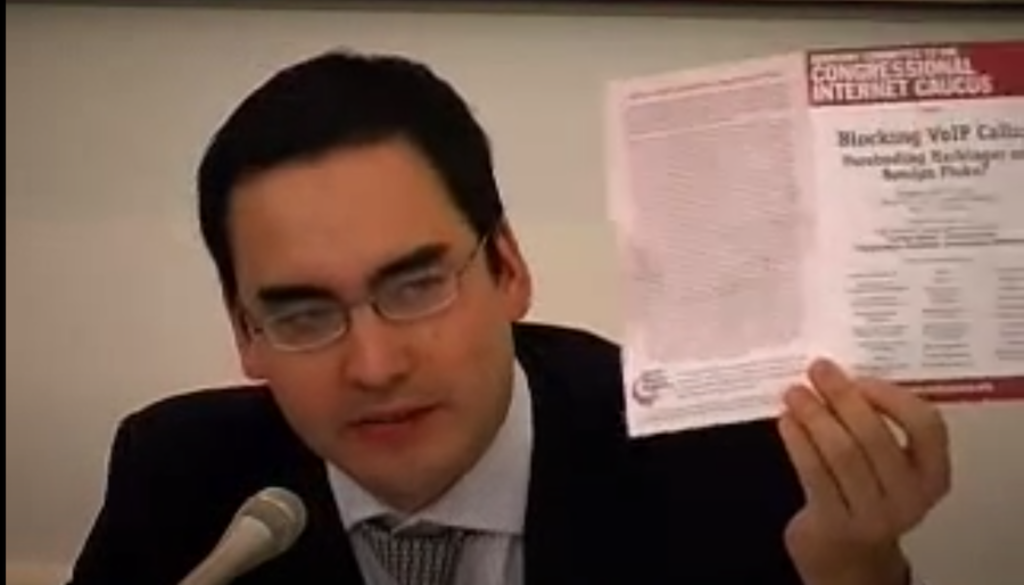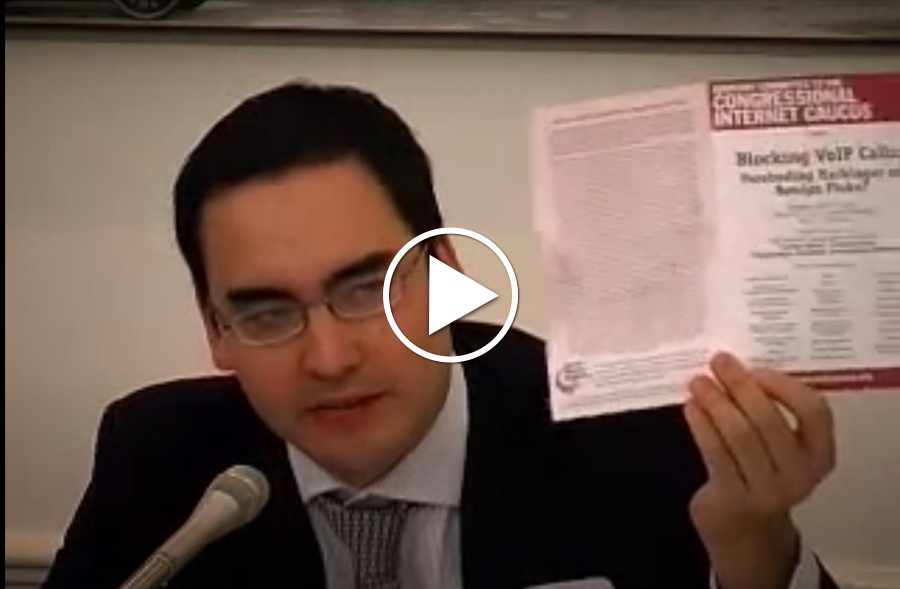The panelists included:
- Dan Brenner, National Cable & Telecommunications Association
- Jeffrey Citron, CEO, Vonage
- James Speta, Associate Professor, Northwestern University Law School
- Timothy Wu, Associate Professor, Virginia Law School
- Jessica Zufolo, Medley Global Advisors (moderator)
Last month, the Federal Communications Commission stopped a telecommunications provider from blocking VoIP phone calls to and from its broadband customers. These customers were using a rival VoIP phone service over the telecommunications company’s broadband connection. The FCC’s adopted consent decree in this matter will expire in 30 months, or on the effective date of a federal statute or Commission rule addressing VoIP call-blocking whichever comes first.
The Internet Caucus Advisory Committee hosted a panel discussion to probe whether this type of competitive blocking is an isolated incident or a sign of things to come.
——————
The discussion was lively and informative, punctuated by opening remarks from our panelists before opening up to questions from the moderator and audience:
Mr. Citron argued that, regardless of the way cable providers are classified under the Telecom Act, consumers should have certain expectations of equal access to the applications they wish to use over their broadband connections. He noted that ISPs and cable companies should be made accountable to the FCC and should not be able to discriminate against his company’s service — either by blocking ports or allocating to it less bandwidth.
Mr. Brenner countered that the cable providers have no intention of blocking VoIP, or any other service that operates over their networks. He noted that the examples of blocking by ISPs were isolated and had been dealt with quickly and adequately by the FCC under the current regulatory framework. He argued that cable providers won’t block new applications, because they can offer competitive products.
Mr. Speta added that cable providers should block certain bits of data, like spam, or anything else that might weaken the security of the network, for example. He argued that the FCC only has authority to regulate cable providers in cases of anti-competitive behavior, and they should only do so on an ex post facto basis; the FCC shouldn’t outlaw “discrimination” beyond cases in which cable providers aren’t providing reasonable interconnection to new entrants. As new entrants join the marketplace, he argued, consumer demand will force cable providers to maintain open networks � as exemplified by the growth in “naked” broadband services offered currently.
Mr. Wu disagreed, arguing that cable providers don’t necessarily have an incentive to maintain fully open networks, predicting more blocking and discrimination of growing video-over-IP offerings in the future. The FCC’s regulatory regime, he argued, should actively seek to ensure that new entrants can compete and interconnect. Without that assurance, we will be left with a Internet backbone in which applications that work in one place won’t work in another. He likened such a scenario to an electric network in which a toaster bought in Wisconsin wouldn’t “interconnect” and work in Wyoming.
This event was hosted jointly by the Internet Caucus and its Co-Chairs, Senators Burns and Leahy and Congressmen Goodlatte and Boucher, and the Chair of the Wireless Task Force, Congressman Honda.


